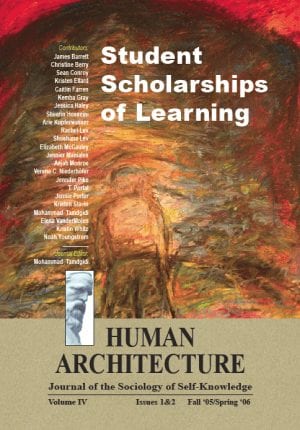Journal Article — Residential Patterns and Political Empowerment among Jamaicans and Haitians in the U.S. Metropolis: The Role of Ethnicity in New York and South Florida — by Cédric Audebert
$15.00
This article explores the connection between residential concentration of two prominent national groups of Caribbean descent–Jamaicans and Haitians–and their contribution to the making of a West Indian political power in the United States.
Description
Abstract
“Residential Patterns and Political Empowerment among Jamaicans and Haitians in the U.S. Metropolis: The Role of Ethnicity in New York and South Florida” by Cédric Audebert explores the connection between residential concentration of two prominent national groups of Caribbean descent–Jamaicans and Haitians–and their contribution to the making of a West Indian political power in the United States.
Considering the significance of place (destination and origin) as major point in Caribbean social experience abroad, it focuses on a double comparative perspective in which Jamaican and Haitian immigrant experiences display similarities as well as differences, in two different metropolitan contexts. The analysis focuses on New York and the South Florida metropolitan area of Miami-Ft. Lauderdale where the majority of Black Caribbean immigrants in the United States live.
In this outlook, it analyzes the fundamental role of ethnic categorization and residential geography in U.S. political life and its implication on the rise of new ethnic constituencies. Ethnic polarization and the related implementation of redistricting as a means to ensure an equal representation of all minorities are discussed.
The growing presence of non-Hispanic Caribbean people in New York City and Florida and the subsequent constitution of immigrant neighborhoods where West Indians form an important component–in some cases the majority–of the population is conceptualized as a challenge to the theories of spatial assimilation and place stratification.
Residential strategies of West Indians are indeed more and more distinct from the Black native ones. Black Caribbean people use their distinct residential areas as geographic bases for the constitution of an autonomous electoral force leading to political power.
The main objectives of gaining political power is to address the specific needs of immigrants from the non-Hispanic West Indies and to give them more visibility on the local and national scene. The meaning of identity for Caribbean immigrants in U.S. politics is analyzed as an instrument for the constitution of a Caribbean block distinct from the African American one.
Changing the focus from the ethnic category at the national scale to the ethnic community at the metropolitan level, and from a solidarity based on national origin to a broader Caribbean perspective, their strategy redefines the meaning of Caribbean identity and raises the question of the pertinence of ethnic categorization in U.S. politics.
At the same time, the national ancestry card is more than often likely to be played in the political arena, especially in West Indian neighborhoods characterized by the residential concentration or overrepresentation of one national origin. Jamaican Americans tend to dominate Caribbean politics in Brooklyn and Broward County, whereas Haitian Americans are at the forefront of West Indian empowerment in Miami-Dade County.
These singular experiences within different metropolitan contexts of incorporation show the importance of place as well as the relevance of the national origin in the understanding of the immigrant communities’ outcome.
Recommended Citation
Audebert, Cédric. 2009. “Residential Patterns and Political Empowerment among Jamaicans and Haitians in the U.S. Metropolis: The Role of Ethnicity in New York and South Florida.” Pp. 53-68 in Migrating Identities and Perspectives: Latin America and the Caribbean in Local and Global Contexts (Human Architecture: Journal of the Sociology of Self-Knowledge: Volume VII, Issue 4, 2009.) Belmont, MA: Okcir Press (an imprint of Ahead Publishing House).
The various editions of Migrating Identities and Perspectives: Latin America and the Caribbean in Local and Global Contexts can be ordered from the Okcir Store and are also available for ordering from all major online bookstores worldwide (such as Amazon, Barnes&Noble, and others).




